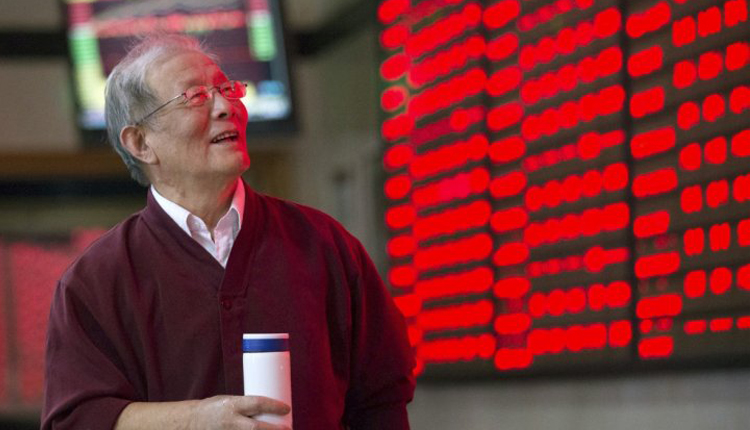Asian stocks declined in Wednesday trade, shrugging off the positive tone on Wall Street, as the dollar broadly firmed in the wake of Turkey’s currency crisis.
Greater China markets slid, with Hong Kong’s Hang Seng Index down 1.52 percent, with losses in tech weighing on the index. Amid the broad declines, tech giant Tencent sank 3.67 percent, extending losses after Tuesday’s news that it had pulled a video game from one of its platforms.
On the mainland, the Shanghai Composite fell 1.31 percent and the blue-chip CSI 300 index lost 1.55 percent. The declines came a day after the release of expectation-missing fixed asset investment and industrial output on Tuesday.
In Japan, the Nikkei 225 steepened losses after the last session’s near 500-point bounce, with the index declining 0.9 percent. Most sectors traded lower, with the oil and coal products sector among the worst-performing as oil prices slipped, while financials and technology also recorded declines. Among heavyweights, SoftBank Group dropped 2.3 percent and Fast Retailing slipped 0.62 percent.
Australian stocks firmed through the session, with the S&P/ASX 200 reversing early declines to drift higher by 0.15 percent. The heavily weighted financials sector, however, remained in negative territory, weighed down by Commonwealth Bank of Australia’s 2.73 percent fall amid an ongoing financial sector inquiry in the country.
MSCI’s index of shares in Asia Pacific excluding Japan was down 1.03 percent in Asia afternoon trade.
Markets in South Korea and India were closed on Wednesday.
The Turkish lira retraced some of its overnight gains on Wednesday after firming some 8 percent in the last session. The currency traded at 6.4370 to the dollar at 12:16 p.m. HK/SIN, but remained above a record low of 7.24 set earlier this week.
The lira’s recent steep fall was triggered last week by increased U.S.-Turkey tensions over the detention of an American pastor in Turkey, but weakness in the currency also came against the backdrop of economic issues faced by the country.
Overnight moves in the currency came as Turkey’s Finance Minister Berat Albayrak said Tuesday that the country would protect the lira, adding that he thought the currency would firm, Reuters said.
The “rebound in the lira [overnight] gave European banks and other emerging markets some respite. However, it is fair to say that the saga is not over,” David Plank, head of Australian economics at ANZ, said in a note.
“The root cause of Turkey’s problems — a very large external deficit denominated in foreign currency – remains unaddressed by authorities … Investors will remain wary of possible contagion to the European banking system and will be keeping an eye on other countries with high levels of foreign-currency debt,” he added.
Amid the negative sentiment in Asia, the dollar index, which tracks the greenback against six other currencies, rose to trade at 96.831, after earlier touching its highest level since June 2017. Against the yen, the dollar extended gains to trade at 111.23 at 12:26 p.m. HK/SIN.
Turkish President Recep Erdogan refused to back down on Tuesday, calling for Turkey to “produce enough for ourselves” in a speech in which he urged his people to boycott U.S. electronics. “If they have iPhone, there is Samsung on the other side. And we have our own telephone brands,” he said.
Stocks stateside rose on Tuesday amid the general improvement in sentiment: The Dow Jones Industrial Average rose 0.45 percent, or 112.22 points, to close at 25,299.92 and the S&P 500 added 0.64 percent to end at 2,839.96, with both indexes gaining after four straight sessions of declines.
In individual movers, Hong Kong-listed shares of Wynn Macau lost 6.44 percent after Jefferies on Tuesday downgraded Wynn Resorts to hold, from buy. Other casino stocks in Hong Kong also fell, with Melco International Development falling 5.09 percent.
Source: CNBC


